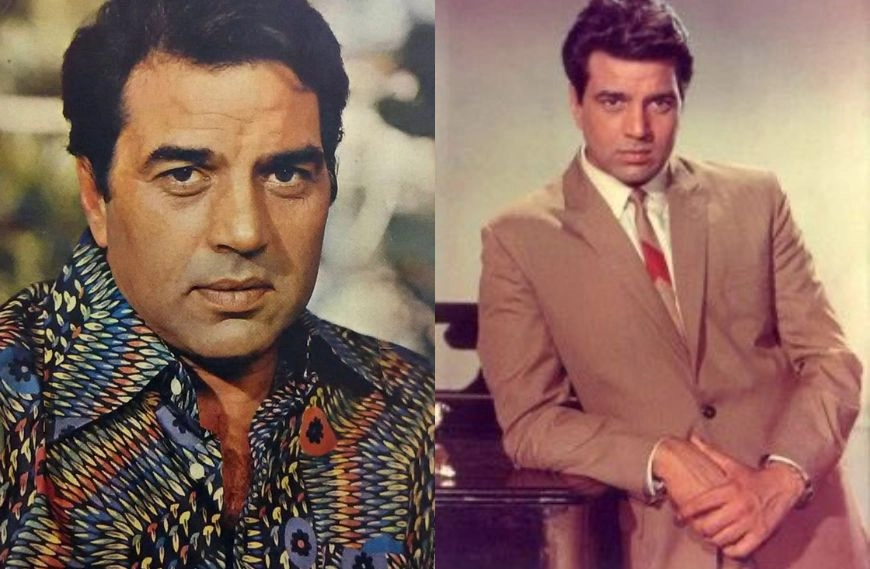If I am a journalist with 54 years of experience today, I’d give the entire credit to only Dharamji. He was the first major star who had condescended to give me an interview even without a prior appointment, that too when I had barged in on the sets of his film Chacha Bhatija at R. K. Studios almost 50 years ago. Randhir Kapoor, who I wanted to interview, had declined to give me the interview when I had turned up without informing him in advance then. When I walked up to him nervously and asked him if I could interview him, he immediately asked me to do the same in his make-up room. In those days, there were no vanity vans available and after I entered the room, when I went blank after the very first question, it was Dharamji who helped me by asking me what to ask him.
The actor, famous for the classic film Sholay, went on to act in several blockbusters including Sholay, Chupke Chupke, Anupama, Satyakam, Seeta Aur Geeta etc. On the professional front, Dharmendra, who had last been seen in Karan Johar’s magnum opus Rocky Aur Rani Ki Prem Kahani with Shabana Azmi, Ranveer Singh and Alia Bhatt, as well as Teri Baaton Mein Aisa Uljha Jiya with Shahid Kapoor and Kriti Sanon, is slated to appear next in the highly anticipated war drama Ikkis. Directed by Sriram Raghavan and starring Agasthya Nanda, the war drama is based on the life of the youngest recipient of the Param Vir Chakra, Arun Khetarpal.
A few months ago, when I had interviewed him, Dharmendra said that his greatest sorrow today when he looks back at his career is the pain he felt when Natraj Studio was demolished to give way to a housing society. “I also remember with nostalgia the various films for which I had shot in Natraj Studio. I have shot the maximum number of films in Natraj, Prakash, R. K. Studios and Modern Studios. None of them exist today. My biggest sorrow today is that they have all become extinct.” By the way, it was Dharmendra who had condescended to give me an interview though I was a rank newcomer way back in 1977 on the sets of his film Chacha Bhatija at R. K. Studios.
When asked how painful it was for him to be away from the camera, he had confessed, “I have always loved cameras. Until 1994, I was quite busy as an actor and used to do thirty pictures in two shifts every day. I’d love to die with my boots on while facing the camera. I was lifeless when I was not facing the camera for almost ten years till I was signed for films like Johnny Gaddaar, Metro and Apne.”
Dharmendra said that his biggest fault was that he never said no and sometimes signed movies which he would not have done otherwise. “My family asked me not to do this picture, I agreed, but the movie became a huge hit. I have listened to other people more than myself. I have led a happy life but I am still working on my mistakes. Par jab piche mud kar dekhta hoon to kuch tasalli si nahi hoti. I could have done some things better but I think we all experience this. When you are facing the camera, your shot is the most important thing. It is like any regular film. But yes, working with your family, you tend to express your emotions better because there is a sense of reality to it.”
Dharmendra had also confessed to me that he had received offers to appear in reality shows earlier also but nothing had appealed to him. “I was a judge in India’s Got Talent because it is not a dance or singing reality show. People with any talent could come here and that is what appealed to me. I understand the feeling of a contestant because I have come from one such contest. But it is very heart breaking to say no. I tried to be as gentle as possible.”
Dharmendra said that there is no more space in the cinema for formulae. “One thing that I am sure will not happen in my movies is bad or foul language. There is no space for formulas in cinema now. We used to have a formula and people liked it but they do not want predictable things anymore. I do not even want to see that. Pictures should be closer to reality. But yes, words have become vulgar. It is difficult to watch a film with family nowadays. We should not use bad words because they affect children badly.”
I will miss Dharamji forever because if only he had not treated me with kid gloves that day, who knows, perhaps I may not have become a journalist at all.
Subscribe Deshwale on YouTube

